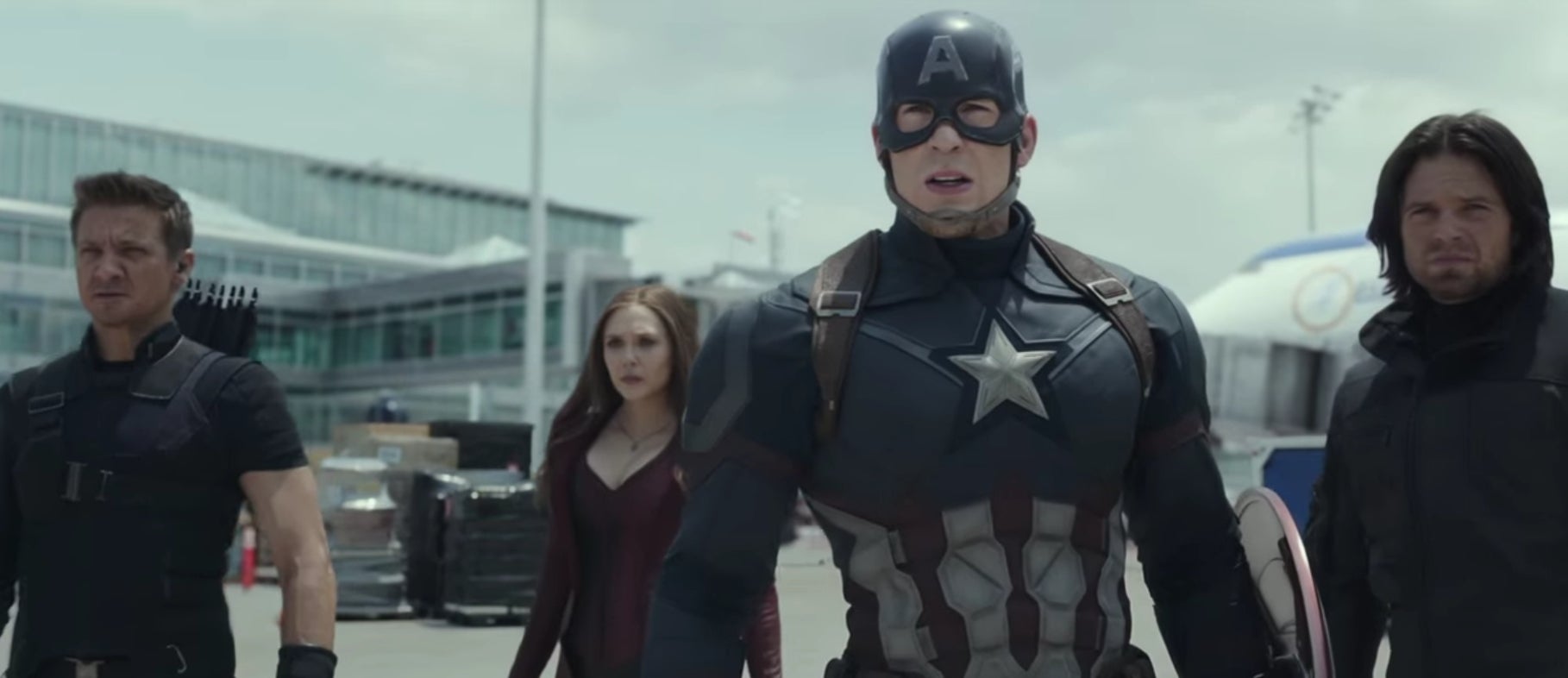Why is the Marvel universe - and the geeks who love it - still obsessed with aggressive hypermasculinity?
I'm looking forward to seeing Captain America: Civil War, but part of me wonders why. We need to raise questions at the model of male bonding and friendship-building by way of violence

Your support helps us to tell the story
From reproductive rights to climate change to Big Tech, The Independent is on the ground when the story is developing. Whether it's investigating the financials of Elon Musk's pro-Trump PAC or producing our latest documentary, 'The A Word', which shines a light on the American women fighting for reproductive rights, we know how important it is to parse out the facts from the messaging.
At such a critical moment in US history, we need reporters on the ground. Your donation allows us to keep sending journalists to speak to both sides of the story.
The Independent is trusted by Americans across the entire political spectrum. And unlike many other quality news outlets, we choose not to lock Americans out of our reporting and analysis with paywalls. We believe quality journalism should be available to everyone, paid for by those who can afford it.
Your support makes all the difference.The trailer for Captain America: Civil War premiered this week and geeks all over the internet exploded with excitement. This is the 13th movie in the Marvel cinematic universe and there are at least 10 more on the way. Superheroes have gone mainstream in a big way. Comic book stories are no longer the exclusive domain of geek subcultures.
Part of that success lies in the appeal of an old-fashioned tale of good versus evil. The scenes of conflict and destruction in these films are viscerally exciting and certainly get the adrenaline pumping. But there is something else at work here, something that has drawn self-described geeks and nerds to comic books for nearly a century, and that is an idealisation of the aggressive hyper-masculine superhero archetype.
Returning to the trailer, it was the last 10 seconds – a protracted fight scene in which beloved superheroes Iron Man and Captain America are shown beating the crap out of each other – that drew a sense of palpable excitement among fans.
A staple of the superhero genre is the tendency to concoct these elaborate scenarios where "good guys" end up having to fight each other for some reason. This is often framed as a way to resolve their interpersonal issues before they can go beat up the “bad guys” and save the world. The ultimate macho pissing contest. Who’s the toughest tough guy of them all?
How do superheroes make friends? By punching each other. How do you resolve conflicts, big and small? By punching each other. Whose plan will be followed? How is trust built among teammates? Face-punching can accomplish all this and more.
We need to raise questions at the model of male bonding and friendship-building by way of violence.
What exactly is so appealing about this particularly aggressive form of hypermasculinity that it’s become a worldwide movie obsession?
Back before The Avengers were household names, superheroes were the domain of geekdom, and particularly “geek guys” who, to some degree, felt personally ostracised and disillusioned by the ideals of stereotypical tough-guy manhood in mainstream culture. Despite being made to feel subordinate to concepts of hypermasculinity, many geek guys have nonetheless embraced superheroes that embody hypermasculine traits and values. They tend to idolise those ideals despite being alienated from them as individuals. This self-identification with hypermasculinity is no doubt one of the factors in the rampant misogyny that plagues the comic book industry and community.
The particular brand of superhero masculinity represents a popular conception of what it means to be a “real man,” a conception that is not relegated solely to the realms of fantasy. Hypermasculinity manifests everywhere in our culture and can be seen reflected in politics, international conflict, municipal policing, domestic violence and interpersonal relationships. All you have to do is look at global leaders who routinely pound their chests while advocating for the use of deadly force as a solution to complex social problems, as if they aren’t talking about delicate matters of international diplomacy but rather boasting about taking down a super villain like Ultron.
One common reaction I encounter whenever I bring up these questions is the concern that there's no way to create exciting dramatic tension or conflict in movies, other than resorting to violence as the ultimate resolution. Of course, that’s not true, as evidenced by one of the most exciting and intense pictures of the year, The Martian. A remarkable thing about that film is that it contains absolutely no violence or killing. All problems are solved through science, cooperation and human creativity.
And yet the filmmakers behind The Martian managed to create a widely successful, thrilling, edge-of-your-seat blockbuster. Given the current state of the world, we could certainly do with a hell of a lot more heroes who solve complex problems with innovation and ingenuity rather than by punching each other in the face. Perhaps it's time to move on from these tired masculinised concepts.
Join our commenting forum
Join thought-provoking conversations, follow other Independent readers and see their replies
Comments